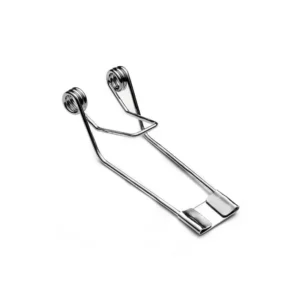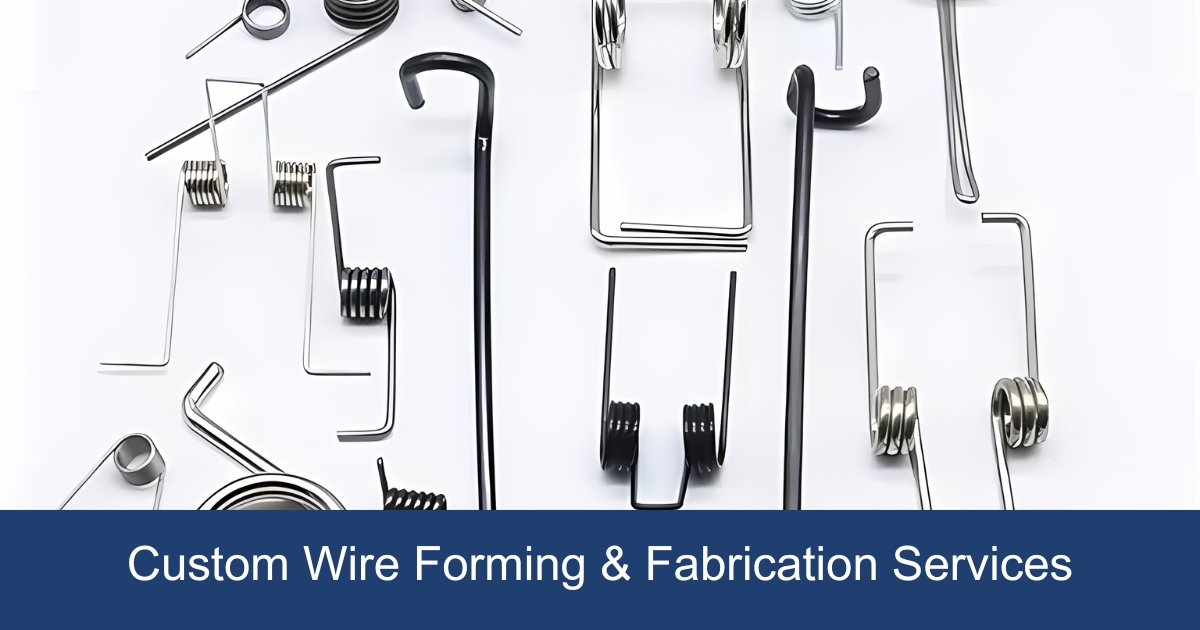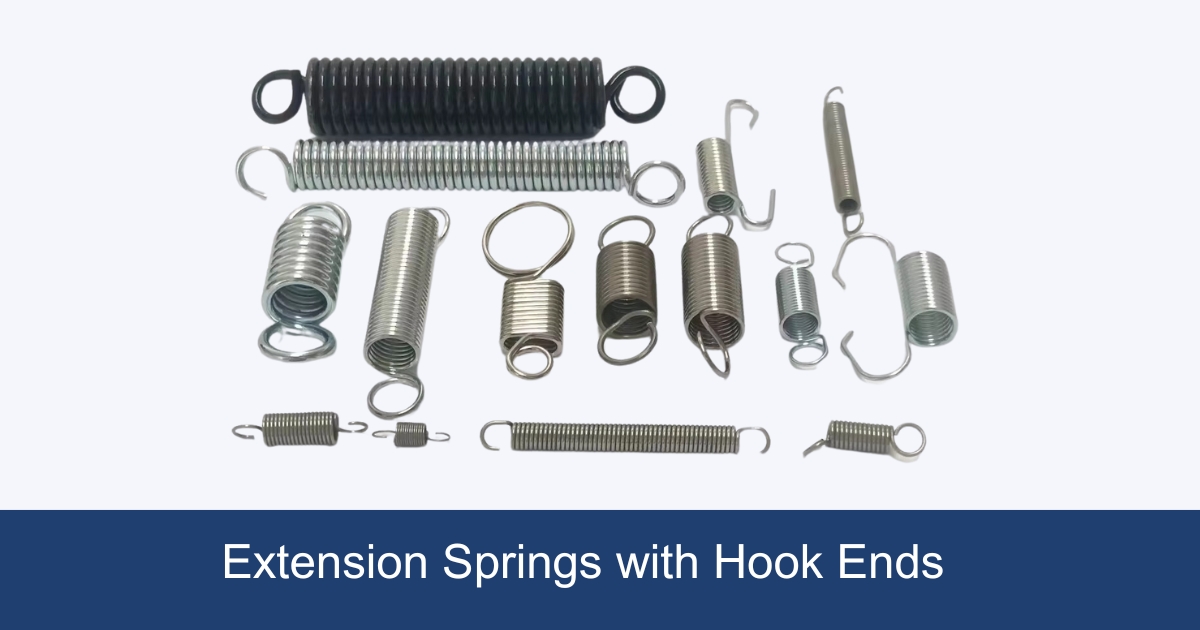Welcome to the “Torsion Springs: The Ultimate FAQ Guide,” your comprehensive resource for understanding torsion springs. Whether you’re delving into the mechanics of these versatile components for the first time or looking to deepen your torsion springs expertise, this guide covers everything from basic principles to advanced applications. Get ready to explore the world of torsion springs, discover their critical role in various industries, and find answers to the most frequently asked questions. Let’s unlock the secrets of torsion springs together!

What is a Torsion Spring
A torsion spring is a mechanical component that stores and releases rotational energy. It is a type of coil spring that works by twisting or torsion. These springs are designed to exert torque and provide rotational force when subjected to angular displacement. Torsion springs are commonly used in various applications where rotational forces are required, such as in hinges, garage doors, and clothespins.
How do Torsion Springs Work
Torsion springs work based on the principle of elastic potential energy. When a torsion spring is twisted, it stores potential energy in the form of torque. This potential energy is released when the spring is allowed to return to its original position. The torque generated by the spring can be used to counterbalance forces, absorb shocks, or provide torque for various mechanical systems.
The performance of torsion springs depends on various factors such as the wire diameter, coil diameter, number of coils, and the material used. These factors determine the spring’s torque, angular deflection, and fatigue life. Custom torsion springs can be designed to meet specific requirements and provide optimal performance for a particular application.
Torsion Spring Types
There are several types of torsion springs available, each designed for specific applications. Some common types include:
- Single-bodied Torsion Springs: These are the most basic type of torsion springs, consisting of a single body with legs or ends that provide the necessary torque.
- Double-bodied Torsion Springs: These springs have two separate bodies, each with its own set of legs or ends. They are used in applications where higher torque or multiple torque directions are required.
- Clock Springs: Clock springs are tightly wound torsion springs typically used in clocks and watches to store and release energy.
- Hinge Springs: These springs are specifically designed for hinge applications, providing the necessary torque to hold the hinge in place and allow for smooth movement.
Torsion Spring Mechanism
The mechanism of a torsion spring involves the application of torque to create rotational force. When a torsion spring is twisted, the wire coils are subjected to shear stress. This stress causes the coils to exert a force that opposes the applied torque. As the torque is released, the spring returns to its original position, providing the desired rotational force.
The design of a torsion spring mechanism requires careful consideration of factors such as the desired torque, angular deflection, and fatigue life. Custom torsion springs can be designed with specific parameters to ensure optimal performance and longevity.
Torsion Spring Design
Designing a torsional spring involves determining the required torque, angular deflection, and other parameters based on the application’s needs. The design process includes selecting the appropriate wire diameter, coil diameter, and number of coils. The material selection is also crucial, as different materials have varying properties that affect the spring’s performance.
Custom torsion springs offer the advantage of tailored design to meet specific requirements. Whether it’s a bespoke torsion spring with rigorous quality control or a prototype torsion spring for testing purposes, the design can be optimized for maximum efficiency and reliability.
Torsion Spring Specifications
Torsion springs are manufactured with specific specifications to ensure their proper functioning. These specifications include the wire diameter, coil diameter, number of coils, and material properties. The wire diameter determines the strength and flexibility of the spring, while the coil diameter and number of coils affect the torque and angular deflection.
Material selection is crucial for torsion springs, as different materials have varying properties such as strength, fatigue resistance, and corrosion resistance. Common materials used for torsion springs include stainless steel, music wire, and carbon steel.
Torsion Spring Uses
Torsion springs have a wide range of applications due to their ability to provide rotational force. Some common uses include:
- Automotive Industry: Torsion springs are used in various automotive components such as suspension systems, clutches, and brakes.
- Industrial Machinery: Torsion springs find applications in industrial machinery for torque control, counterbalancing, and energy storage.
- Medical Devices: Torsion springs are used in medical devices such as surgical instruments, implantable devices, and diagnostic equipment.
- Consumer Products: Torsion springs are found in everyday consumer products such as garage doors, clothespins, and door hinges.
Custom torsion springs offer the advantage of tailoring the spring’s specifications and design to meet specific application requirements. This ensures optimal performance, reliability, and longevity.
How are Torsion Springs Made
Torsion springs are manufactured using various processes and techniques. The manufacturing process begins with selecting the appropriate wire material and diameter. The wire is then coiled into the desired shape using specialized machinery. The ends or legs of the spring are formed to provide the necessary torque.
Once the spring is formed, it undergoes heat treatment to improve its strength and durability. This process involves subjecting the spring to high temperatures and then cooling it rapidly. The heat treatment process also helps to relieve stress and increase the spring’s fatigue life.
Quality control is crucial during the manufacturing process to ensure that the torsion springs meet the required specifications. This includes conducting dimensional inspections, torque testing, and fatigue testing.
Torsion Spring Manufacturers
There are numerous torsion spring manufacturers that specialize in producing custom torsion springs. These manufacturers have the expertise and capabilities to design and manufacture torsion springs to meet specific requirements.
When selecting a torsion spring manufacturer, it is important to consider factors such as experience, capabilities, quality control measures, and customer reviews. Working with a reputable manufacturer ensures that the torsion springs are of high quality and meet the required specifications.
Prototype Torsion Springs
Prototype torsion springs play a crucial role in the product development process. These springs are used to test and validate the design before mass production. Prototype torsion springs allow for adjustments and refinements to be made to the design to ensure optimal performance.
Working with a manufacturer that offers prototype torsion springs allows for the evaluation of different design options and material choices. This helps in identifying any potential issues or improvements that need to be made before finalizing the design.
In conclusion, custom torsion springs offer a wide range of benefits and applications. Whether it’s a bespoke torsion spring designed with rigorous quality control or a prototype torsion spring for testing purposes, custom springs can be tailored to meet specific requirements. By understanding the working mechanism, types, design considerations, and manufacturing process, one can harness the power of custom torsion springs for various applications.
If you are in need of custom torsion springs to meet your specific application requirements, contact our expert team at [manufacturer’s website] today. We specialize in designing and manufacturing high-quality custom torsion springs to ensure optimal performance and reliability.



